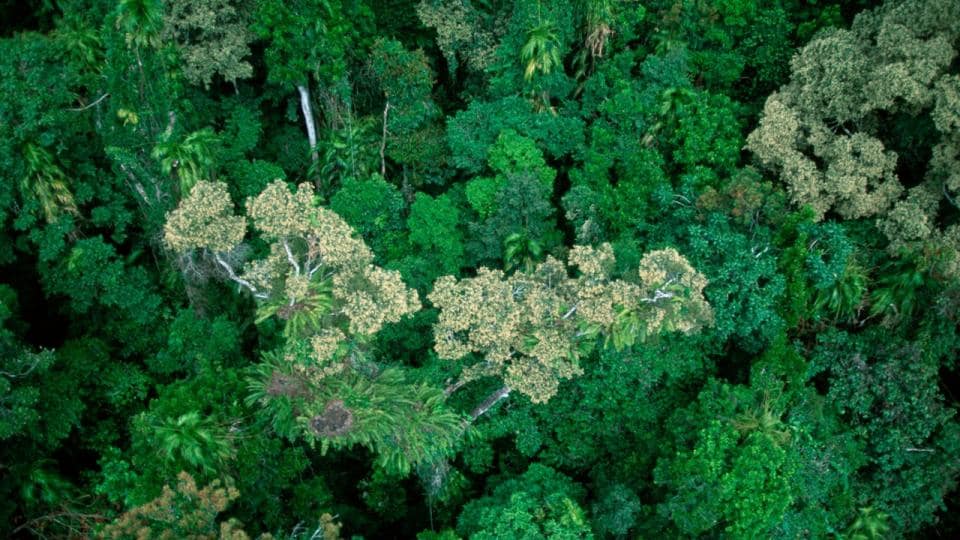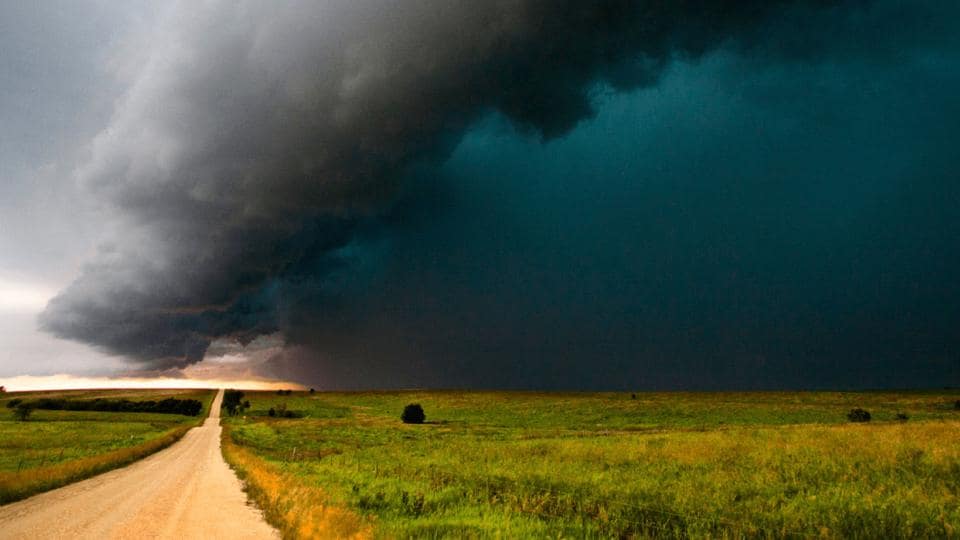We Farmers Work With Hearts And Minds

When I say I think in long periods of time, that also applies to my daily life. Correctly nurturing the soil is a permanent task. I have to keep at it and keep the soil open. Otherwise erosion can occur in the worst case. If the soil isn’t okay, it won’t absorb rain.
I think that many people have become estranged from agriculture. Most people don’t have any idea how modern farms work. Maybe we’re partly to blame because we don’t spend enough time explaining what we do and how we do it. Many people still have a clichéd picture in their mind of a farmer clattering through his field on a tractor with a large manure trailer attached to it.
Very few people know that nearly all farmers are highly qualified specialists who have studied their profession. I wrote my dissertation more than 20 years ago about the effect of fungicides in winter wheat. We work with high-tech machines that cost as much as a single-family home and that can drive straight ahead with satellite accuracy at the touch of a button – very few people know all this. Food can be found on supermarket shelves, and preferably it’s cheap. Consumers don’t understand how it gets there and how much work is involved.
Sometimes I don’t think people respect our work either. They lack a basic trust in what we do. People go onto the internet, gather a bit of information on some website or other and then think they know what’s going on. But this phenomenon doesn’t just apply to farmers.
- 1/4
- 2/4
- 3/4
- 4/4




We farmers work with hearts and minds, not just for our own well-being, but on behalf of society as a whole. I hold responsibility for my own health and that of my family. I hold responsibility for the food we produce. Another of my duties is to conserve the ecosystem on our farm. I only spray where I have to.
Do people think I would do anything that puts my health, my family or the general public at risk?
Take, for example, the herbicide glyphosate that is the subject of so much debate. I see glyphosate as the key to protecting the soil. I work according to a system based on a quarter of a century’s experience. If there is a heavy frost, I don’t use it. If there is no frost, I need glyphosate. I spray the product before I sow new crops – usually at the beginning of March. In this way I can do away with catch crops and weeds that haven’t yet died off. I observe all the safety rules, wear protective clothing and use the product exactly as instructed. None of my colleagues has ever had any negative experiences with this herbicide, which we’ve been using for decades. If I can’t use glyphosate, I have to plow more deeply and grind up more of what’s in the soil – in other words, I have to intervene far more deeply in the soil than I’d prefer.
If I don’t work carefully, later generations will have problems. My grandkids will see if I’ve left anything over. That’s how tenaciously weeds stay in the soil.
Damianshof Farm has been working together with Bayer for a long time. The relationship began with my father four decades ago. Today it’s called ForwardFarming. We work on new solutions for sustainable agricultural practices. Mother Nature always has the last word. Yet we show in the test fields how we can increase yields with crop protection. GPS-based application technology enables us to apply crop protection products and fertilizer to crops with pinpoint accuracy. Thanks to a special timer, I know when it’s the right time to do so. That’s when we combine the Olligs family’s decades of experience and tradition with modern agricultural technology.
We also want to demonstrate the positive contributions that we farmers can make. We plant flowering strips and study how many insects settle there. Protecting insects is a particularly important issue for us. There are fewer than there used to be. But why is that? More research has to be conducted here. As farmers, we can help. We’ve set up a bee hotel at Damianshof Farm. Using the example of a shrub bed, we show how farmers and consumers can contribute to biodiversity by setting the right plants.
Farmers from around the world visit us in Rommerskirchen to learn at our ForwardFarm. We’ve even had visitors from Chile, Brazil and China. Their fields are ten thousand kilometers away, but the challenges we face are the same everywhere. Climate change, global warming, more extreme weather. We farmers ensure that people have food to eat. And we are committed to conservation.
We want the next generation to have it better than our own. I want my sons to have it better. That’s my aim. Every day.
Born in 1967, Bernd Olligs comes from a farming dynasty. The family man operates Damianshof Farm in Rommerskirchen near Cologne with his family.




















